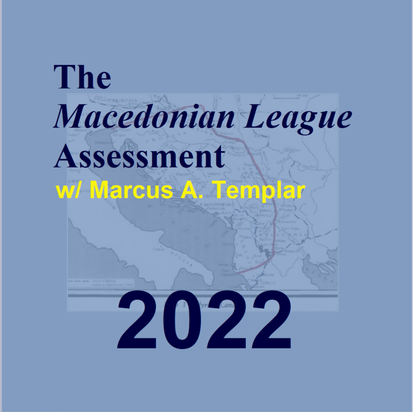
"The Turkish MİT and the Russian SVR are "excellently" sending Greece to its demise one piece at a time. In this manner, Greece will disintegrate piecemeal and become easier to be manipulated to its demise. I know how both operate, and this is a warning."
-- Marcus A. Templar
There has been an uptick of the blurring of the term "Rum" this year from primarily Turkish sources. Can you explain what the term "Rum" is and Turkish misinterpretation of said term within Turkey.
 Marcus A. Templar
Marcus A. TemplarNational Security Advisor
Macedonian League
Muslims believe the above was a prophecy fulfilled by the Byzantine Emperor Heraclius, who launched a campaign in AD 622 against the Sassanid Persians in Asia Minor. The campaign started as a Byzantine military counter-offensive resulting in a crushing defeat for the Persians. Muslims cite the above as an example of the miraculous nature of the Quran. (Geisler; Saleeb 2002, 107 and Shanker, 1992, 129).[1][2]
Perversely, the Turks based on a continuous regression line of reasoning starting with the Quran, they made anything Byzantine, i.e., Christian Greek items, institutions, and buildings, became Rum, and anything Rum, built by pagan Greeks remained Rum translated into Roman. Even Greeks under the Ottoman Great State started calling themselves Rum, or in Greek, Ρωμιοί (Romioi), but unfortunately continues even today in the modern Turkish Republic.
The phrase «ἐγῶ Ῥωμιὸς γεννήθηκα, Ῥωμιὸς θὲ νὰ πεθάνω» pertains to the under Ottoman yoke Greeks. Yet it exists even today in their mind. For instance, my father, born within the Ottoman Great State, was a Rum, or Roman, but since I was born in Greece, I am Yunanlı or Greek. This was the explanation I received from one of my teachers from Adana.
However, let us not forget the term Rumeli, "the land of the Rum"; of course, it was a term when Greece was under Ottoman rule, but I have heard many Greeks of the present referring to Sterea Hellas (Central Greece) as "Rumeli." That tells me that the Ottoman thought is still in the minds of some Greeks in modern Greece itself.
To recap, under such Turkish logic, EVERYTHING built, say, between 1500 BCE and today by Greeks (Ionian, Dorians, Aeolian) in areas controlled by Turkey falls under the category of Rum.
So when one visits Ephesus, a city built around 1000 BCE by Greeks, according to the Turks one visits a Roman city. The fact is that the Romans appeared in the area in 129 BC. In that year, King Attalus of Pergamum ceded Ephesus to the Roman Empire in his will, and so Ephesus became the seat of the Roman provincial governor. It is similar to how many ignorant "experts" state "ancient Turkey," as absurd as it is. Nevertheless, the absurdity continues.
It seems that Turkey is working very closely with Facebook to censor certain content. It is now common to see posts that deal with Turkish national security issues, posts discussing genocide, especially when Turkish perpetrators are named like Topal Osman, or posts that compare Atatürk to Hitler in any way are always removed by Facebook or hidden from an audience.
However, people must know that Turks work as ONE TEAM for the benefit of Turkey regardless of political views. It is okay for people to enjoy the views of those Turks who want to change Turkey. However, they must keep their eyes on the ball. The MİT (Turkey's National Intelligence Organization) does not employ cub scouts.
Their network is beyond the understanding of ordinary people. Propaganda, bullying, extortion, and a few other ways of persuasion are means employed in the name of Turkism. Nobody is spared. They work like the spy systems of the GESTAPO and NKVD/KGB, but now they go after those who use the Internet.
Turks reward journalists and
- social media like Facebook, Instagram, Twitter, Reddit;
- social question-and-answers website like Quora and The Onion;
- non-academic reference source like Wikipedia and all other Wikis-type social media
with all kinds of bribes and payments maintaining fake accounts managed and staffed by the MİT.
Albanians are slightly different but aim toward the same goal: establishing excuses and propaganda exalting the state, the language, and "race."
One can easily find who is employed by the MİT by the arguments they present against Greece and in favor of Turkey. Never mind what names and credentials they present online. I had fun with a man with an Anglo-Saxon name who was supposedly born in New Jersey and attended Tufts University with a Master's degree while he attacked Greece using very bad English. Another one was supposedly from Zimbabwe, protecting the might of Turkey until I gave him some facts he could not respond to.
Turks always have or find excuses to justify any crime the Ottoman Great State and/or the Turkish Republic committed in the name of Pan-Turkism.
Tell us about the proactive nature of the Turkish MFA via their Embassies and Consulates where Turks abroad are encouraged to call in even the slightest anti-Turkish position they read or hear, whereas the Greek MFA could not be bothered to do the same abroad.
When the Turks left Greece, they took away everything good Greece had to offer. Greeks stayed back with the mentality the aghas had imposed on them during the 500-year occupation. “Σφάξε μὲ ἀγᾶ μου γιὰ ν' ἁγιάσω, δὲ βαριέσαι, ὅλοι ἀδέλφια εἴμαστε” are only part of the remnants of Ottoman misrule. It has little to do with Islam. It has everything to do with Pan-Turkism.
A few months ago, Greece delivered humanitarian aid to Odessa. Nobody heard about it, not even the Greeks. If Turkey had done it, the whole world would know about it. Turks know whom to lobby, how to lobby and encourage their lobbyists to do the job they are paying for. When it comes to Turkey, there is no such a thing as wishy-washy partisan politics followed by the Ottoman, "μὰ τί θὰ πεὶ ὁ κόσμος"?
Part of how Turks work is the example of celebrity Dr. Mehmet Öz. He was born in Cleveland, OH, on June 11, 1960. In 1980, he went to Turkey to serve the Turkish Land Forces (Türk Kara Kuvvetleri) as an officer to keep his dual nationality. He was quoted as saying,
"The great thing about America is that you can hold on to whatever heritage you come from," he explains. "We celebrate the different cultures, so I had the privilege, as the son of immigrant parents, to grow up American while staying deeply in touch with my Turkish roots. I have a great deal of family back in Turkey, I lived there for a period as a boy, and I served in the Turkish military, which is compulsory for dual citizenship." (Akman, Terri. "Dr. Oz: On A Mission, The New Wizard of Oz." SJMagazine, December 2011).
Although Dr. Oz's allies blast his critics as "racist and pushing dog whistles," Dr. Oz dodges to answer the question of the Armenian Genocide, and one could easily assume he will do the same regarding the Greek and Assyrian genocides. After all, the Turkish culture has molded him under the doctrine, "Turkey might not always be right; but she is never wrong."
Of course, it is nothing wrong with him serving his home country for whatever reason, except that the reason he gave means that it is crucial to him to owe allegiance to two countries. That holds true for many people except those elected to make laws based on often highly classified information, civil servants, and the military required by law to hold office, necessitating clearance to handle classified information.
These individuals fill out the Standard Form 86, or SF-86, which is nothing less than a whopping 127 pages long. It is packed with questions requiring a very high level of transparency and honesty. Any answers that the investigators consider murky have to be clarified to the satisfaction not only of the investigators but, most importantly, by granting the clearance authority.
According to the late Senator Patrick Moynihan, elected officials automatically receive a clearance because their voters trust them. I do not remember the highest level of clearance they receive based on such a trust. However, those in Congress who participate in select committees must be cleared by the FBI, or perhaps now by the Office of Personnel Management (OPM), to handle Top Secret clearance with access to Sensitive Compartmented Information clearance that is not available to the public.
Because of it, the matter has further implications since it constitutes a national security risk. Dual nationality is a forbidden indulgence for military personnel and civil servants assigned to jobs requiring a security clearance, much more for those in Congress and their aids. After all, these people determine highly classified information and enact laws that directly involve and affect issues about the national security and interests of the United States.
Holding dual nationality, Dr. Oz is a threat to the national interests and security of the United States. He can be easily extorted through his relatives by the very proactive Turkish government and its MİT.
The idea behind one's clearance is based on the level of trust the government has in the person regarding the lifestyle for which he or she might be susceptible to blackmail or coercion. Furthermore, there is the issue with Dr. Oz's dual nationality and celebrity status.
Nevertheless, another question that arises is Dr. Oz's residence. Since he lives in New York, how can he run from Pennsylvania?
How serious is EO 14033 and how can one find themselves on the wrong side of this Executive Order?
I remember one Albanian tried to push the Greek name Εὐνίκη (Eunice) as Albanian. After I explained a few things to him, he asked me what I had against Albanians. I responded, "I have nothing against Albanians, but I hate poppycock garnished with malarkey regardless of their source and ethnicity. Give me facts. Do not convey your beliefs as facts to me." But the way he wrote his texts, vocabulary, and grammar made it evident to me that he lived in Australia. So, I asked him how the weather was in Australia. He never responded.
Over the years, several scholars have studied Albanians' genetics, focusing on historical and linguistic facts. However, very few of them did proper research. The argument of Albanians that they are descendants of Illyrians because they live on an Illyrian territory is, at best, childish.
One of the best books on the ancient Thracian language group and its relationship to Greek, Dacian, Moesian, and Illyrian is the book written by Vladimir Georgiev (Владимир И. Георгиев, Траките и техният език, Издателство на Българската Академия на Науките, София, 1977).[3] The problem is that Georgiev's 348-page book is in Bulgarian with only one French version. However, he wrote a short academic monograph published "The Genesis of the Balkan Peoples." The Slavonic and East European Review 44, no. 103 (1966): 285–97.
One can read Georgiev's book summary in Kroraina <http://www.kroraina.com/vg/vg.html> or one may access it in JSTOR <https://www.jstor.org/stable/4205776>.
I am offering two paragraphs of Georgiev's monographs for the reader's convenience. They both regard the relationship between Albanian on the one hand and the Dacian, Moesian, and Romanian languages on the other.
But many linguists and historians, e.g., H. Hirt, V. Pârvan, Th. Capidan, A. Philippide, N. Jokl, G. Weigand, P. Skok, D. Detschew, H. Baric', I. Siadbei, etc. have put forward very important considerations indicating that the Albanians cannot be autochthonous in the Albania of today, that their original home was the eastern part of Mysia Superior or approximately Dardania and Dacia Mediterranea, i.e. the northern central zone of the Balkan Peninsula, and part of Dacia.
And after he explains facts on the issues in seven points, he concludes,
In this way, it has been definitively proved that Albanian is descended from Daco-Mysian. Therefore the primitive home of Albanian is a Daco-Mysian region, probably Mysia Superior (Dardania, Dacia Mediterranea) or western Dacia. This fact enables us to explain the numerous typical agreements between Albanian and Rumanian. Rumanian and Albanian took shape in the Daco-Mysian region; Rumanian represents a completely Romanised Daco-Mysian, and Albanian a semi-Romanised Daco-Mysian.
It seems that the Romans, especially Emperor Trajan, are behind the forced migration of Dacians and Moesians to the lower Balkans along the Adriatic Sea and their partial transfer to the Italian Calabria and parts of Adriatic Italy like Abruzzo. Their descendants are today's Albanians or Arbëreshë (Albanese) in Italy. For the Romans, the defeated enslaved people were a force of cheap labor.
Albanian nationalism started with the Austro-Hungarian Empire's national interests.
Certain Western scholars studying the origins of the Albanians advanced the now discredited hypothesis that the Albanians descended from the ancient Pelasgians. One of them, Austrian linguist Johann Georg von Hahn, in his Albanesische Studien (Albanian Studies) published in 1854, hypothesized that the Pelasgians were the first Proto-Albanians and that the languages of the Pelasgians, Illyrians, Epirotians and ancient Macedonians were closely related. It is beyond my comprehension why a linguist got mixed up with mythology. It would be most appropriate for a historian to do so only to attempt to explain certain historical events or locations. Then, a linguist would compare the phonemes of Albanian speakers to other Balkan people, possibly using various historical events as migrations.
Another event in which Austria silently pushed the existence of Albania was the acceptance of Albanian delegates in the 1878 Council of Berlin.
All this started in the19th century nationalism (Albanian Rilindja), which resulted in the Italian invasion of Greece in the early hours of October 28, 1940, after the Albanian Parliament declared the union of Albania with Fascist Italy.
Albanian nationalism continued under Enver Hoxha and his Yugoslav friends, who deprived Greece of Northern Epirus. When the PM and MFA of Greece Tsaldaris went to Paris in 1947 for the Peace Treaty, he suggested to the Yugoslavian delegation to split Albania. Unfortunately, he went unprepared and was a victim of his ignorance and clumsiness. Before one engages with an opponent, whether on the negotiating table or the battlefield, one must know one's opponent and oneself.
Some "academics" using Kling-Klang etymology and imaginary history went beyond that. Recently, Elena Kocaqi wrote a book in which the Trojan war was a civil war between two Illyrian tribes, essentially making both Greeks and Trojans, Illyrians. The Albanian government supports and indirectly sponsors such extremism under the banner of academic freedom.
Under the title "Austrian Scholars Leave Albania Lost for Words", Besar Likmeta published in Balkan Insight on March 25, 2011, a very caustic article regarding the findings of two Austrian Academics.
"Like a couple of detectives searching for clues, Stefan Schumacher and Joachim Matzinger are out to reconstruct the origins of Albanian – a language whose history and development has received remarkably little attention outside the world of Albanian scholars."[4]
Of course, the issue is not whether Albanians should have a country or not. The point is that Albanian ultra-nationalists using cockamamie ancestry, false linguistic derivation, and invented historical continuity keep shaking the regional stability of the southern Balkans.
We must, therefore, attract the attention of the White House on this; it needs to apply EO 14033.
People investigate phonemes comparing Armenian to Albanian without paying attention to whether they evaluate Albanian of the Caucasus, i.e., Aghwank and Aluank, or Albanian of the Balkans, i.e., Shqip.
Albanians play the whole world like a Stradivarius violin. One advocate and troublemaker is Joseph John DioGuardi, an American certified public accountant and a Republican politician. DioGuardi served in the House of Representatives, representing the 20th Congressional district of New York from 1985 to 1989. He was the first Albanian American voting member of Congress. The family traces its roots to the Arbëreshë (Albanese) minority in Italy, officially established by Mussolini. A former member of Congress had and has ample access to visit and lobby for Albanian causes. He had a lot to do with the bombing of Serbia and the independence of Kosovo.
The importance of Emperor Trajan in the formation of Romania is depicted in the second stanza of the Romanian National Anthem:
Acum ori niciodată să dăm dovezi la lume
Că-n aste mâni mai curge un sânge de roman,
Și că-n a noastre piepturi păstrăm cu fală-un nume
Triumfător în lupte, un nume de Traian.
.------------------------------------------------.
Now or never, let us show the world
That through these arms, Roman blood still flows;
And that in our chests we still proudly bear a name
Triumphant in battles, the name of Trajan!
The Roman emperor Trajan conquered Dacia, a land that covers roughly the same territory as modern Romania. As a result, Romania became the land where Roman veteran soldiers could move in and live by getting their homesteads. The Dacians fought the Roman tooth and nail but succumbed to the Roman might in the end.
Trajan and his successors forced the migration of the Dacians and or part of the Mysians (Moesians) to the locations where present-day Albania is and also to Calabria and the Adriatic coast of Italy. To the Romans, it was a case of cheap slave labor.
I am thinking of writing something on the issue.
As I have mentioned before, I was born in a family in which each branch spoke different languages. Greek was our lingual franca. Thus, I appreciate the existence of all languages. I feel very sad when I find out that a language is extinct. Thank God, Tsakonika is being taught in some schools.
I must stress that live languages develop. Latin itself is a dead language, but it survives in its derivative languages like Italian, Spanish, Romansh, and so on. What I cannot stand is the falsification of a language's origins as a tool for a nation's false origin and vice versa.
What can be stated about the Russian push for an Exarchy in Africa?
When one researches a matter, asking the wrong questions, surveying the wrong people, using an exclusive collection method, and misinterpreting data results could easily create problems.
Also, one must keep in mind that, at that time, people had limited resources. The standards the Fathers of the Church had placed were as high as they should.
The New Testament had to be God-inspired and canonical, i.e., apostolic origin, have universal acceptance, liturgical use, and consistent message. They took the Old Testament as it was in Judaism. To Christians, the Old Testament constitutes an educator in Christ.
Now returning to the political side of it, Turkey will not let the title go, not because its politicians are in love with Christianity, but because it is a matter of prestige for Turkey. It will never give up the title of Ecumenical out of its soil unless the Greeks, especially of the diaspora, help.
But like all documents written in the past, one must consider the culture of each nation and time. I remember one man could not understand why it took the Apostle Paul six months to travel from the area of Troy to Kavala or Neapolis. I was tempted to respond that he could find an earlier flight. But, no, it is not funny. Such logic creates problems in interpreting older events and deeds.
At the start of the Russian war in Ukraine, Greek and Cypriot politicians made the very bizarre gaffe that the invasion of Ukraine was the first invasion in Europe since WWII. How could that have happened?
On the other hand, I remember the invasions of the USSR on Hungary on November 4, 1956, and Czechoslovakia on August 21, 1968. So, I put their multi-annual occupation aside. I could add some more, but since the starting point is WWII, it is a matter of opinion whether the starting dates should be in 1945, 1946, 1947, and so on. Of course, the other reason could be quasi-medical; it is called Politically Induced Dementia (PID). Some people would call it cowardice!
What can be said about the outright lack of professionalism within Greek organizations in the diaspora?
I happened to have a little experience on the matter, so, I slowly withdrew in early 2000. What annoyed me the most were the unscrupulous demagogues who found fools and told them what they wanted to hear. Also, the businesspeople thought because they run successful businesses, they could succeed in running organizations the same way.
You won't believe how many and how often people take ego trips. Things might work out in Greece but dealing with foreign-based organizations that follow their constitutions and laws may not be as easy or good as politicians hope. In general, people do not know their cognitive limits. Because today it is easy to find something online, everyone has become an "expert" until they face a real expert. Then although they should listen to experts, they argue with them, agitating a reaction that would help them learn something new. Then, they use the information they received from the experts, presenting it as their own. When I face know-it-alls, I do not argue with them. Instead, I let them unveil their unconscious incompetence on a specific subject matter. In English, they are called dumbasses! In Greek, κουτοπόνηροι!
The other problem is that political aides try to please the bosses who run the government of Greece in a transactional manner.
Organizations that take it upon themselves to solve Greece's "national issues" do not have the resources (human resources, financial resources, physical resources, and information resources) to weigh the potential consequences of each decision, including unintended consequences (sometimes unanticipated or unforeseen) of a purposeful action that are not intended or foreseen.
Worse, since politicians of Greece use transactional relationships with the diaspora, they hold the reins on how any such organization would effectively move. They always consider at home voters connected to the organization. Greece has a lot of politicians who care only about the next elections. So, they sacrifice what is good for them and their political party than for the national interests and security of the country. I am slightly paraphrasing Aesop's statement, "after all is said and done, a lot is said, but nothing is done." Greece needs STATESMEN. It has a lot of politicians.
In an organization, one does not manage people; one manages affairs. One leads people, and leading people is not easy.
The first thing I learned in Political Science and fully agree with is that one cannot run a government of any kind as one runs one's business. But on the other hand, an organization is a government.
What can be said about the Greek political establishment and their tight Athens-centric grip on the country?
Almost half the country's population lives in the basin of Attica because everything is going on there. Most companies exist, and consequently, most jobs and other opportunities exist in the basin of Attica. So, people from all over the country move to Attica.
Who is behind all this? The same people who have lived in Athens all their lives. Still, they supposedly represent Patras, Euritaneia, Thessaloniki, Chania, Kozani, and what have you. It is why they own houses in Athens.
I know only of one who actually rented during his tenure in government. He was renting a place in Athens. Even his boss was after him because he was working for the people who had placed him in the Parliament. He did what everyone else did not do. He WORKED for the people whom he represented.
A movement had started to transfer the Capital of Greece to Lamia, demographically, a great idea because Lamia is in the center of the mainland. However, I wonder why it has died out. The hydrocephalus of Athens is killing it.
Will Bulgaria and Skopje ever align their modern historical past?
At first, these two speeches are the closest languages to the Old Church Slavonic. Western Bulgarian is actually the language that the Thessalonian Brothers Cyril and Methodius using the alphabet they had invented, translated the Bible from Greek to the then Slavic language of Macedonia.
Bulgarians living under Ottoman rule never expressed an individual ethnic conscience in any form. Slowly, however, things changed, and while Bulgaria was independent, those within the Skopjan state were under Serbian linguistic influence until the breakup of Yugoslavia. On the other hand, easterners also had stronger ties with Russia. As a result, their dialect was considered the purest dissociated from a non-Slavic foreign influence. Over and above, Bulgaria had short but firm periods of autonomy and absolute independence on October 5 [O.S. September 22] 1908.
Now, coming to the language. Standard or colloquial Bulgarian does reflect some western features, even though it is primarily based on the eastern dialect. One would contend that it happens due to the notoriety of Veliko Târnovo as the old capital of Bulgaria. Also, the geographical structure has more dynamic financial advancement on both sides of the Stara Planina or Balkan Mountains compared to the Western half of the linguistic domain.
After the communist takeover, the Skopjan language was codified and slowly Serbianized; in the early 1960s Cyrillic alphabet was established according to the Serbian version of the Cyrillic alphabet.
On the other hand, Bulgaria made a few changes in its alphabet, it could come into an understanding with Skopje to find common ground in revising both alphabets to the point that they could serve both dialects.
Grammatically, the differences between both languages are almost non-existent. But, of course, one cannot stop the nationalists of both sides from telling you otherwise. So, whether the two countries will unite one day, my answer is maybe, but I do not expect the union to be like the one between West and East Germany. I think it will be gradual.
At the beginning of the last century, people's communication was rather impossible. First, we had the telegraph, then the telephone came, and now we have reached the point of not even thinking about reaching someone on the other side of the Earth. I can say the same thing about transportation, as well. Lack of communication and meager transportation made diasporas live in a time warp. Today, such a thing is hardly true.
The reason I mention it is that people from both countries are going to get closer and closer. Since the language will no longer be a barrier, it will help assimilation. The time is here of essence.
Many groups in Greece are now finally calling for one national date for the commemoration of the Greek Genocide. However Greek political establishment is still pushing for an international Pontian Genocide recognition. How do you see this call for a unified NEUTRAL date and what we can learn from the Jews and Armenians in this regard.
It will be a blessing if those who descend from Pontus of Anatolia dispose of the underhanded provocations separating themselves from the rest of the Greeks. In case they have missed it, Pontians are Greeks. There is no parallel to Greek ethnicity. Either they are Greeks, or they are not.
Even people who are not Greeks in origin are proud to say that they are Greeks since they were born in Greece.
As for the date, the Greek government has established September 14 as the date of the Greek Genocide in Asia Minor, and it looks okay to me. The exit of the Greeks from Smyrna took place on September 13; the next day, September 14, is the commemorative date of the Elevation of the Venerable and Life-Giving Cross. Therefore, the government of Greece combined these two days into one.
It will be a blessing if the Pontians who claim to be Greeks learn the etymology and the meaning of the word GENOCIDE and think about it.
GENOCIDE is the deliberate killing of a large number of people from a particular nation or ethnic group with the aim of destroying that nation or group.
In other words, GENOCIDE is an internationally recognized crime where acts are committed with the intent to destroy, in whole or in part, a national, ethnic, racial, or religious group.
I do wonder in what way the Pontians differ from the other Greeks and why the promotion of a separate Pontian-specific genocide?
Incidentally, a friend sent me this very interesting documentary on Vimeo entitled "Lethal Nationalism: Genocide of the Greeks 1913-1923" https://vimeo.com/ondemand/lethalnationalism/
Keyes, Nelson Beecher. Story of the bible World in Map, Word and Picture, . New York: C. S. Hammond,
1959.
Ptolemy, Claudius. Geography . Edited by J. Lennart & al Berggren. Princeton: Princeton University Press,
2001.
Suvorov, Viktor. Inside the Soviet Army. New York: MacMillan, 1982. "The Great Patriotic War of 1941-45."
Российская военная энциклопедия (Koutchkovo Polje) III (2012).
Георгиев, Владимир И. Траките И Техният Език. София: Институт За Български Език, Издателство
На Българската Академия На Науките, 1977.
[1] Norman Geisler; Abdul Saleeb (2002). Answering Islam: The Crescent in Light of the Cross (revised ed.). Baker Books. p. 107.
[2] Uday Shanker (1992). Internal Unity of All Religions. Enkay Publishers. p. 129.
[3] Владимир И. Георгиев; Траките и техният език (1977 В Георгиев) - [PDF Document] (cupdf.com)
[4] https://balkaninsight.com/2011/03/25/austrian-scholars-leave-albania-lost-for-words/
About Marcus A. Templar
Professor Marcus A. Templar is a former U.S. Army Cryptologic Linguist (Language Analyst), Signal Intelligence and All-Source Intelligence Analyst. During his career as a U.S. Intelligence Officer, besides organizational duties, he discharged the responsibilities of a U.S. Army Observer/Controller, Instructor of Intelligence Courses specializing in Deconstruction of Strategies, Foreign Disclosures Officer, and Translator Interpreter of Serbo-Croatian. He is the Macedonian League's National Security Advisor.
_____
About the Macedonian League
We are an international professional Hellenic advocacy group. Our primary purpose is to advance our interests to informed and responsive governments on issues concerning Greece's national security and territorial integrity. As of 12 February 2019, the Macedonian League's main focus is on the “Prespes Agreement", as this Agreement is a serious national security issue for Greece and the wider Balkan region. The Macedonian League also focuses on exposing and combating anti-Hellenism and analyzing political developments in Skopje.
For more information, follow us on: Website, Facebook, Twitter

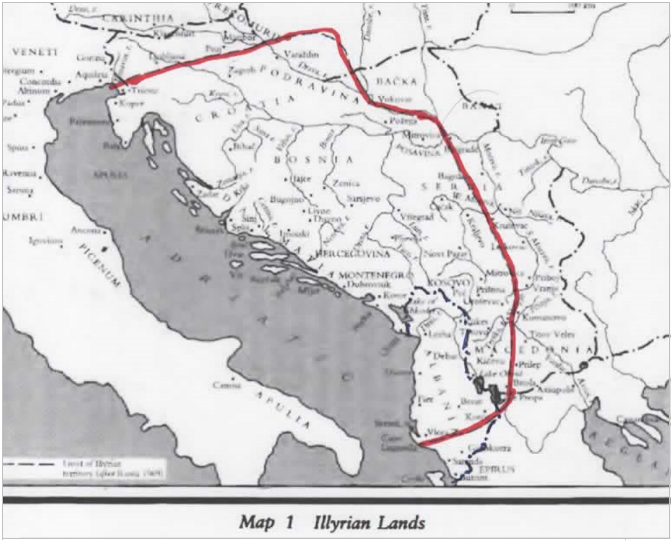

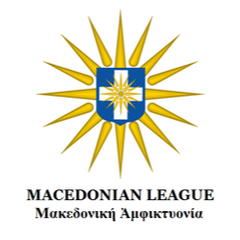
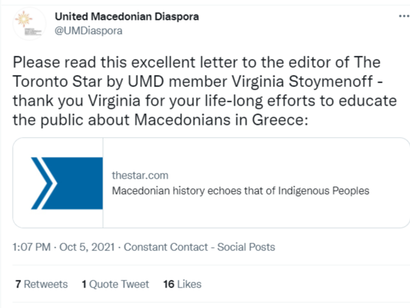
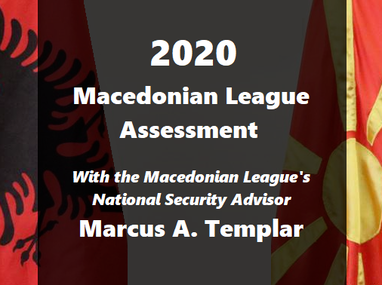
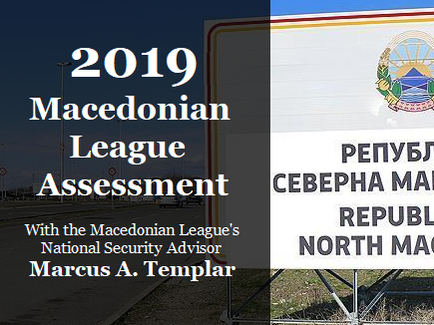
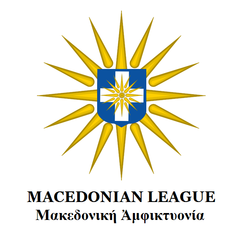
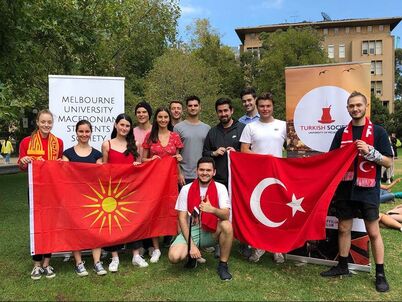
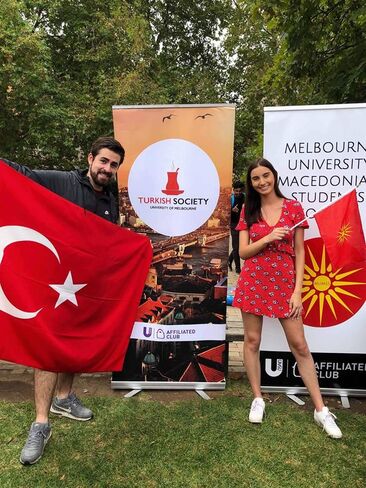
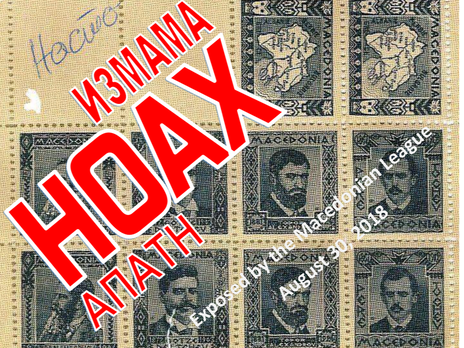
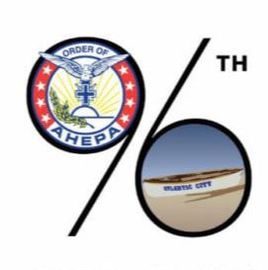

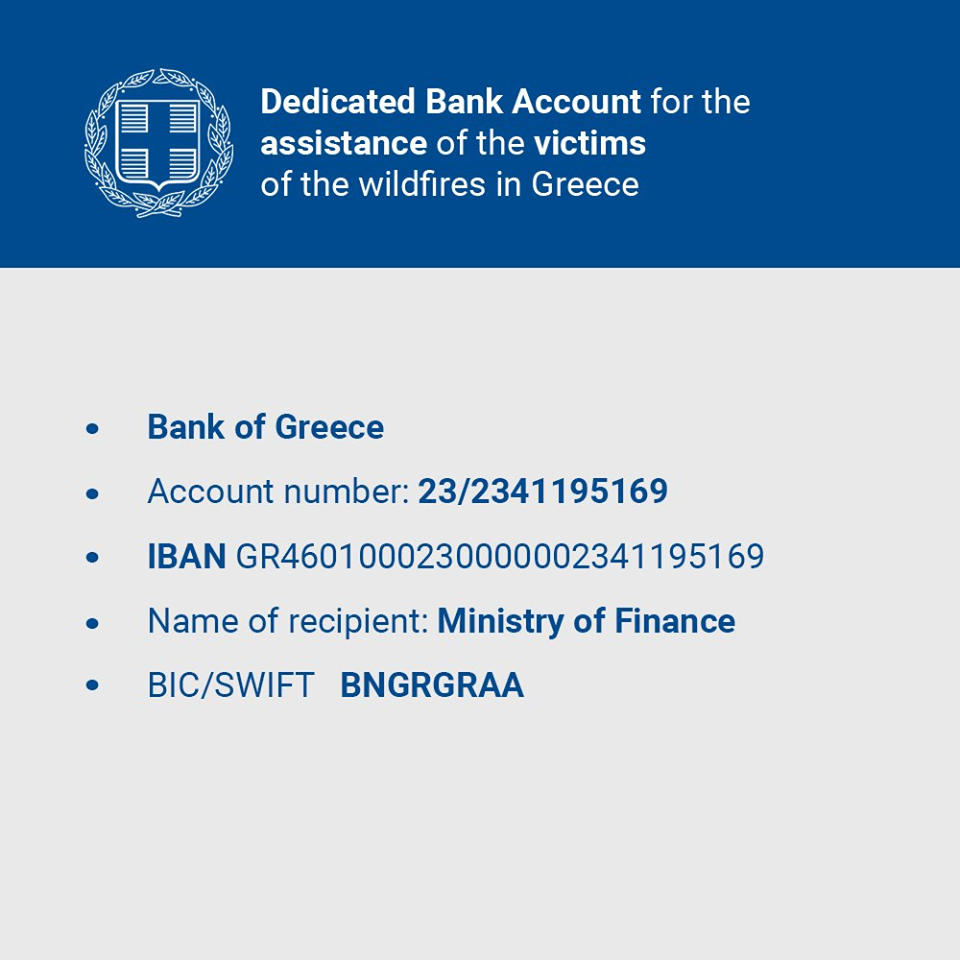
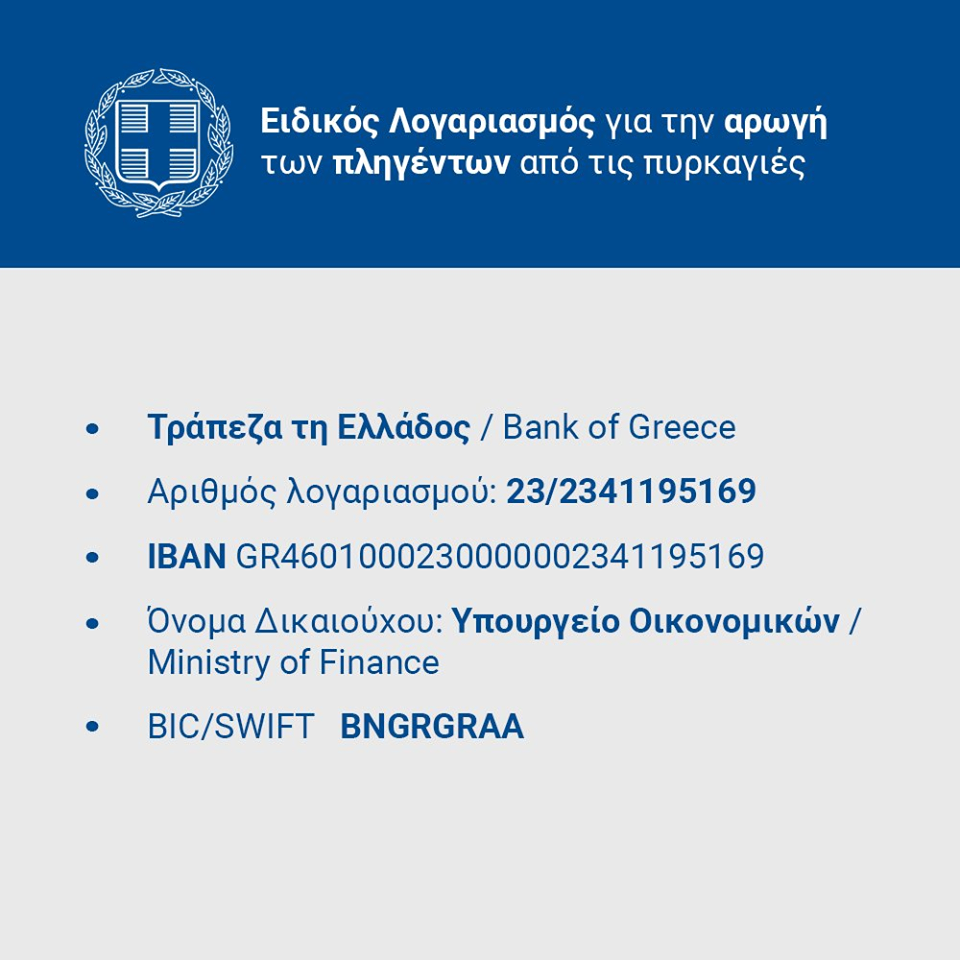
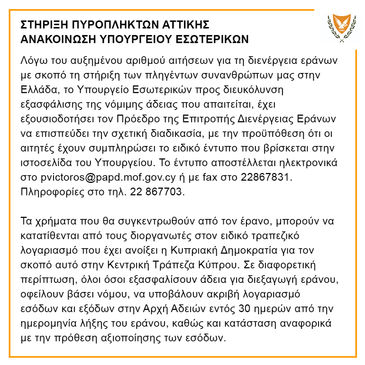

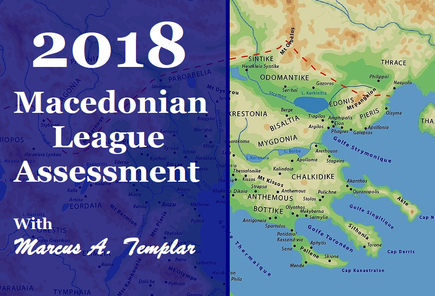


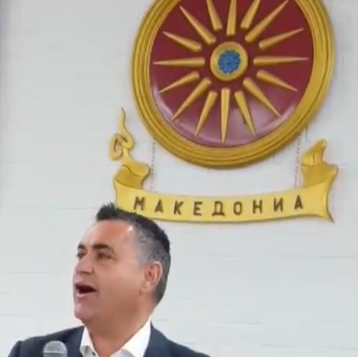
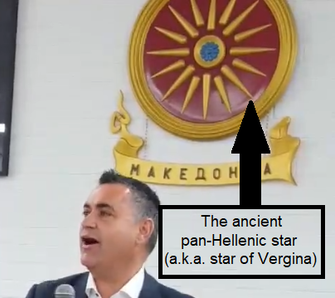
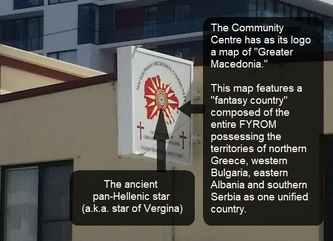
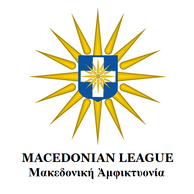

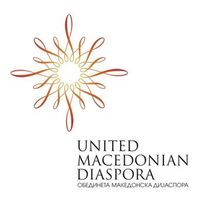
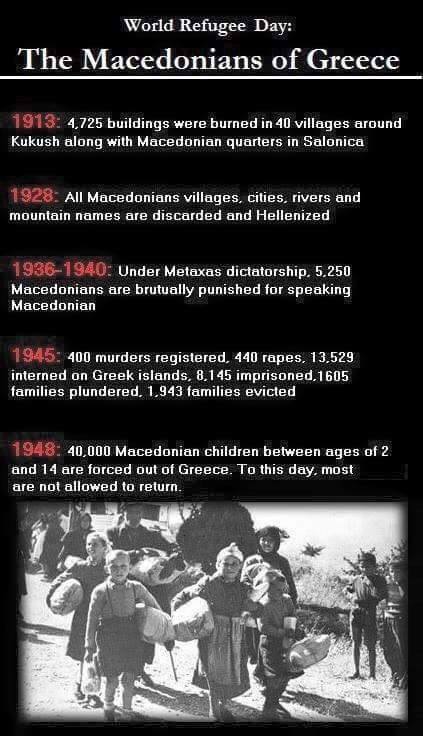
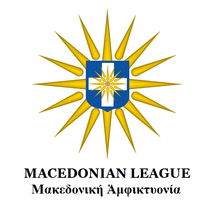
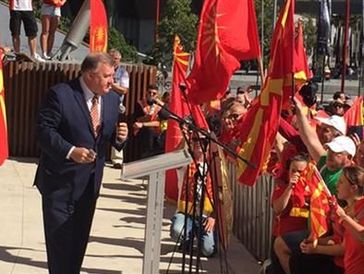
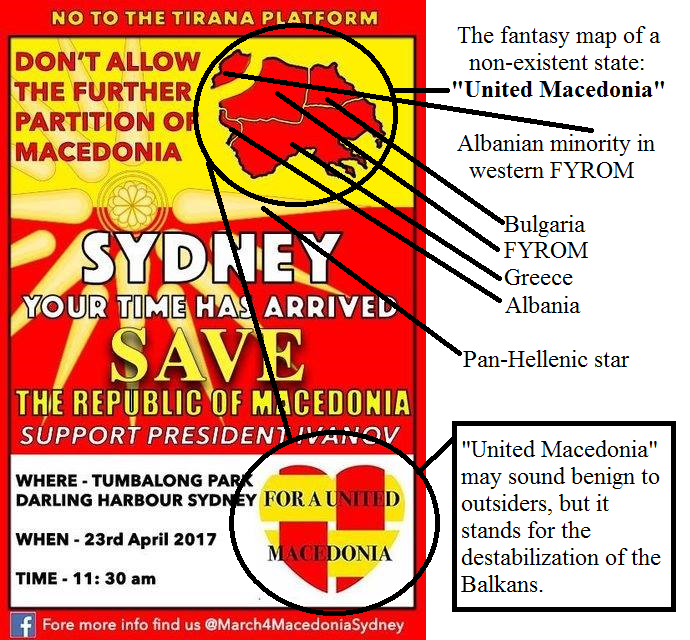
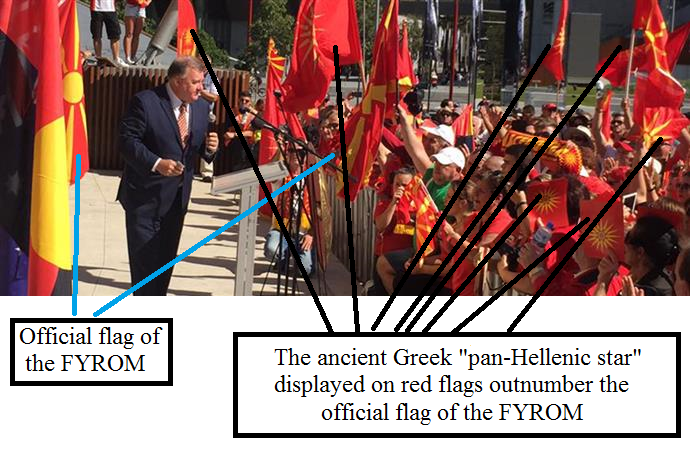
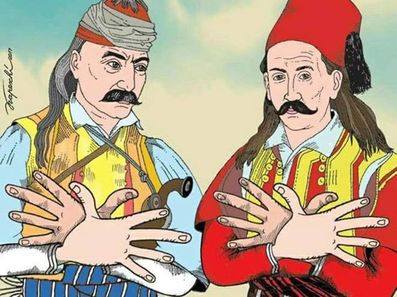
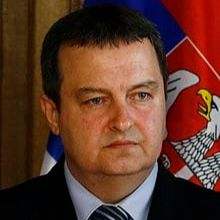

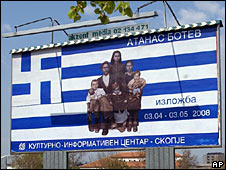



 RSS Feed
RSS Feed